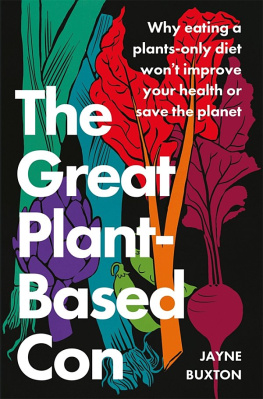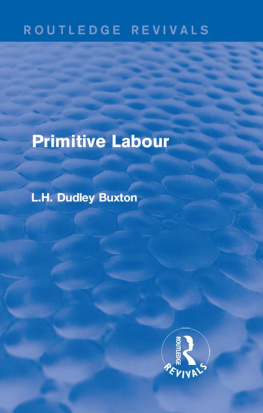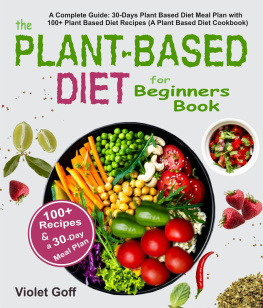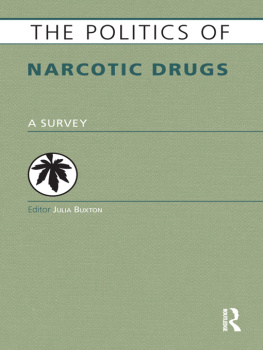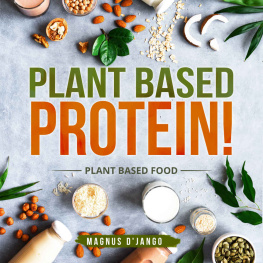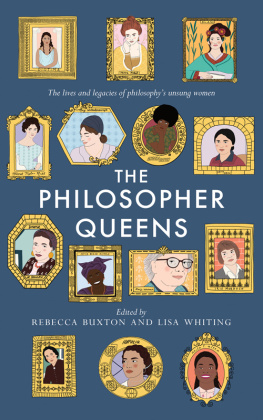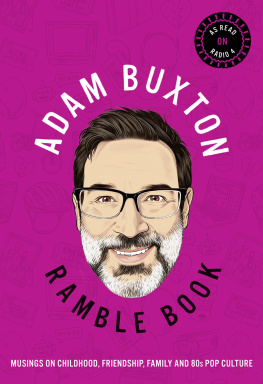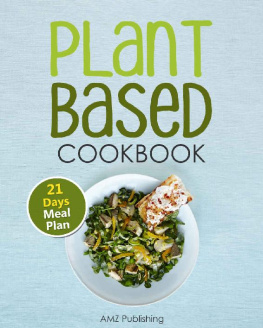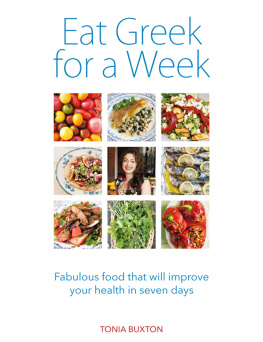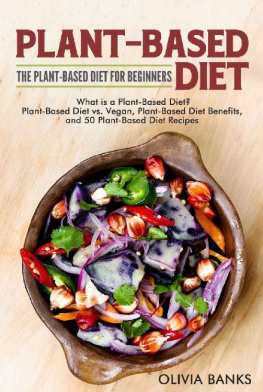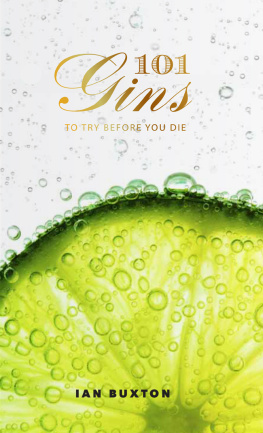Jayne Buxton - The Great Plant-Based Con
Here you can read online Jayne Buxton - The Great Plant-Based Con full text of the book (entire story) in english for free. Download pdf and epub, get meaning, cover and reviews about this ebook. publisher: Little, Brown Book Group, genre: Politics. Description of the work, (preface) as well as reviews are available. Best literature library LitArk.com created for fans of good reading and offers a wide selection of genres:
Romance novel
Science fiction
Adventure
Detective
Science
History
Home and family
Prose
Art
Politics
Computer
Non-fiction
Religion
Business
Children
Humor
Choose a favorite category and find really read worthwhile books. Enjoy immersion in the world of imagination, feel the emotions of the characters or learn something new for yourself, make an fascinating discovery.
- Book:The Great Plant-Based Con
- Author:
- Publisher:Little, Brown Book Group
- Genre:
- Rating:3 / 5
- Favourites:Add to favourites
- Your mark:
- 60
- 1
- 2
- 3
- 4
- 5
The Great Plant-Based Con: summary, description and annotation
We offer to read an annotation, description, summary or preface (depends on what the author of the book "The Great Plant-Based Con" wrote himself). If you haven't found the necessary information about the book — write in the comments, we will try to find it.
The Great Plant-Based Con — read online for free the complete book (whole text) full work
Below is the text of the book, divided by pages. System saving the place of the last page read, allows you to conveniently read the book "The Great Plant-Based Con" online for free, without having to search again every time where you left off. Put a bookmark, and you can go to the page where you finished reading at any time.
Font size:
Interval:
Bookmark:
Jayne Buxton was born in the UK and spent many years living in Canada before returning to Europe to study for an MBA at IMD Business School. She worked as a management consultant for a major international consultancy before publishing her first work of non-fiction, Ending the Mother War: Starting the Workplace Revolution (1998). The book was called a fiercely intelligent exploration of the entrenched positions and false choices faced by women wanting to combine motherhood and careers. Jayne subsequently co-founded Flametree, a web community and consultancy focused on helping companies to move towards more parent-friendly cultures and working practices. After selling Flametree, she focused on writing, publishing two novels and graduating from the Kingston University Creative Writing Masters Programme, where she was awarded the George Markstein Fiction Prize. More information about Jaynes work can be found at www.jaynereesbuxton.com.
Like Ending the Mother War, The Great Plant-based Con challenges the dominant narrative about an important issue and proposes a compelling alternative perspective.

PIATKUS
First published in Great Britain in 2022 by Piatkus
Copyright Jayne Buxton 2022
The moral right of the author has been asserted.
All rights reserved.
No part of this publication may be reproduced, stored in a retrieval system, or transmitted in any form or by any means, without the prior permission in writing of the publisher, nor be otherwise circulated in any form of binding or cover other than that in which it is published and without a similar condition including this condition being imposed on the subsequent purchaser.
A CIP catalogue record for this book
is available from the British Library.
ISBN HBK 978-1-408-71744-8
ISBN TPB 978-0-349-42794-2
eISBN 978-0-349-42793-5
Piatkus
An imprint of
Little, Brown Book Group
Carmelite House
50 Victoria Embankment
London EC4Y 0DZ
An Hachette UK Company
www.hachette.co.uk
www.littlebrown.co.uk
The information in this book is not intended to be a definitive guide to what you should eat, but as a reference volume that provides a broad understanding of the health and ethical factors to consider, thereby enabling you to make your own informed decisions. The information given is not intended to replace any advice given to you by your GP or other health professional. If you have any concerns about your health, please contact the relevant health professional.
Mention of specific companies and organisations does not imply endorsement by the publisher, nor does mention of specific individuals, companies or organisations imply that they endorse all of the arguments presented in this book. All efforts have been made to assure the accuracy of the information contained herein, as of the date of publication.
For the farmers around the world who will take us towards a sustainable, real food future.
PART ONE:
IS THE PLANT-BASED DIET BETTER FOR YOUR HEALTH?
PART TWO:
WILL A PLANT-BASED DIET SAVE THE PLANET?
PART THREE:
WHO IS ADVOCATING FOR THE PLANTBASED DIET, AND WHY?
About six months after I started doing the research for this book, I found myself sitting at a table in the tearoom of the Ham Yard Hotel in central London. Some of the tables around mine were laid with crisp white cloths, fine bone china and towers of scones and sandwiches, whereas others were occupied by lone urbanites tapping away on laptops, cappuccinos at the ready, or small gatherings of people huddled in discussion. The afternoon tea takers and those using the tearoom as a workspace were all dressed in some variation of fairly formal urban attire. A few immaculately coiffed ladies sported silk tea dresses with bows at the neck. It was all very English, and likely exactly what people around the world would imagine when asked to picture a modern-day tearoom in a smart hotel in London.
Into this scene strode a tall, broad-shouldered figure with a magnificent handlebar moustache and wearing a giant Stetson and cowboy boots. Heads swivelled and more than a few conversations were paused as this American cowboy made his way to my table.
This was Nebraskan rancher Trent Loos. Trent was in the UK visiting farmers and gathering information that he could share with the American Ambassador in connection with USUK trade talks. After listening to one of his radio interviews, I had emailed him with some questions, and he had told me that, by coincidence, he would be in London and would be happy to meet.
Trent was accompanied by Englishman Andrew Henderson, who, I would soon discover, is managing director of Nemi Milk and a friend of Trents. The three of us spent a couple of hours together, during which both Trent and Andrew enlightened me as to the realities of meat and dairy farming in both the US and the UK and shared their thoughts on everything from the misconceptions about US meat to their hopes for technologies and farming approaches that would both benefit the environment and deliver more nutrient-dense food.
At some point, I asked Trent how he had come to be a spokesperson for farmers and to have a radio show that was broadcast on one hundred stations across twenty-one states in the US. He told me that it all started in 1999 when he got really pissed off by what he saw as increasing amounts of misinformation about farming and farmers. People were being misled, he said. I wanted to be part of the solution. I thought, this false story that was being put about by animal rights activists is just going to dominate unless I and others tell the real story. We, who have first-hand experience, needed to share what was really going on.
In May 2000, Trent walked into a local radio station and asked for his own show. Six months later he was producing Loos Tales, a Monday to Friday daily look at the people and places in rural America that truly make it what it is. He has been broadcasting ever since, in addition to speaking all over America and across three continents. His aim always is to send people away wanting to make a difference.
That meeting with Trent and Andrew was the first of many I had while I was researching and writing The Great Plantbased Con, but it was the only one in which I sat in a tearoom with a giant of a man in a Stetson and another man whod brought a carton of his own milk for me to try. I met people who, like Trent, are concerned about the way the debate about food, health and the environment has been commandeered by plant-based advocates intent on pursuing a single solution to all our human and environmental problems. They shared their expertise, guided me through their work and towards the work of others, and gave generously of their time so that I could put forward the case for reframing that debate. It is not an exaggeration to say that I could not have written this book without them. A list of the individuals I interviewed, as well as others whose published work was invaluable to informing mine, is provided at the back of this book. If you are interested in knowing more about some of the topics that will be discussed over the next few hundred pages, you can go straight to the experts via their published works and the Web, podcast and Twitter addresses provided.
Before we get started, a number of things need to be clarified, notably the term plant-based itself, which seems to mean different things to different people. For some it means eating mostly plants with a bit of fish, meat or dairy thrown in occasionally, or even every day, whereas for others it means eating nothing but plants at all times. For yet another group of people it might mean including some plants in their mostly omnivorous diet. An Australian survey from 2010 confirms that people interpret the terms plant-based, vegan and vegetarian in significantly different ways.1 A more recent study investigating the association between dietary patterns and Covid-19 evidenced similar levels of misunderstanding. Respondents who described themselves as eating a plant-based diet subsequently reported eating dairy twelve times a week, meat or seafood five times, and eggs twice. Their consumption of vegetables was only marginally greater than that of people who described themselves as not following a plant-based diet.2
Font size:
Interval:
Bookmark:
Similar books «The Great Plant-Based Con»
Look at similar books to The Great Plant-Based Con. We have selected literature similar in name and meaning in the hope of providing readers with more options to find new, interesting, not yet read works.
Discussion, reviews of the book The Great Plant-Based Con and just readers' own opinions. Leave your comments, write what you think about the work, its meaning or the main characters. Specify what exactly you liked and what you didn't like, and why you think so.

